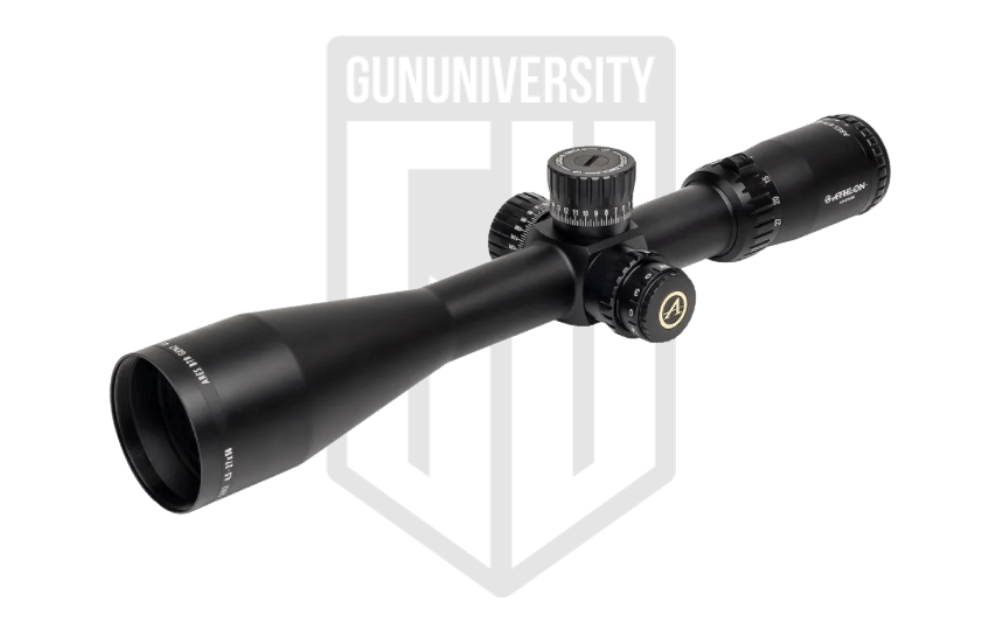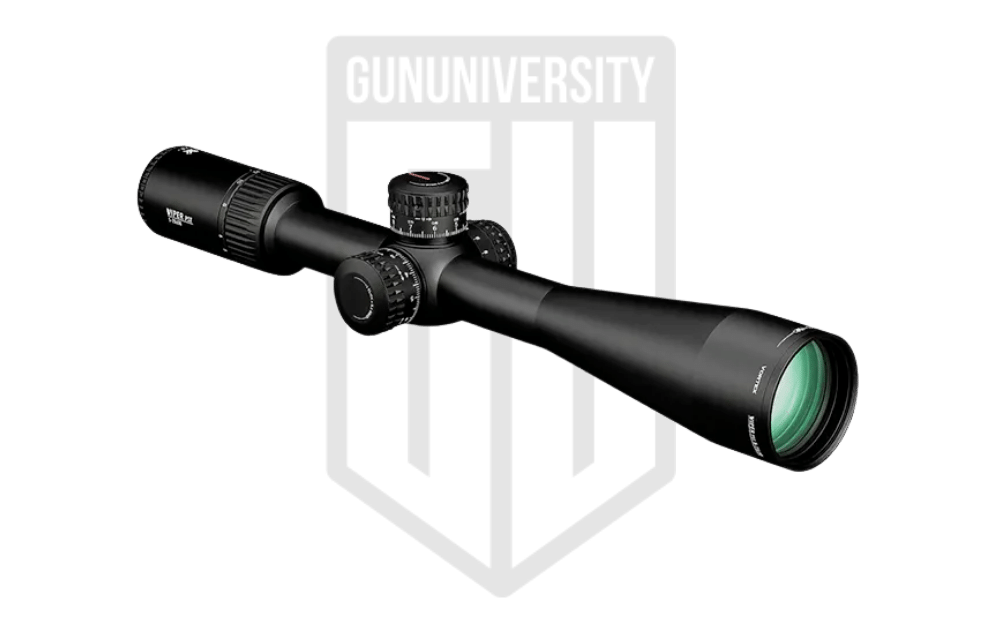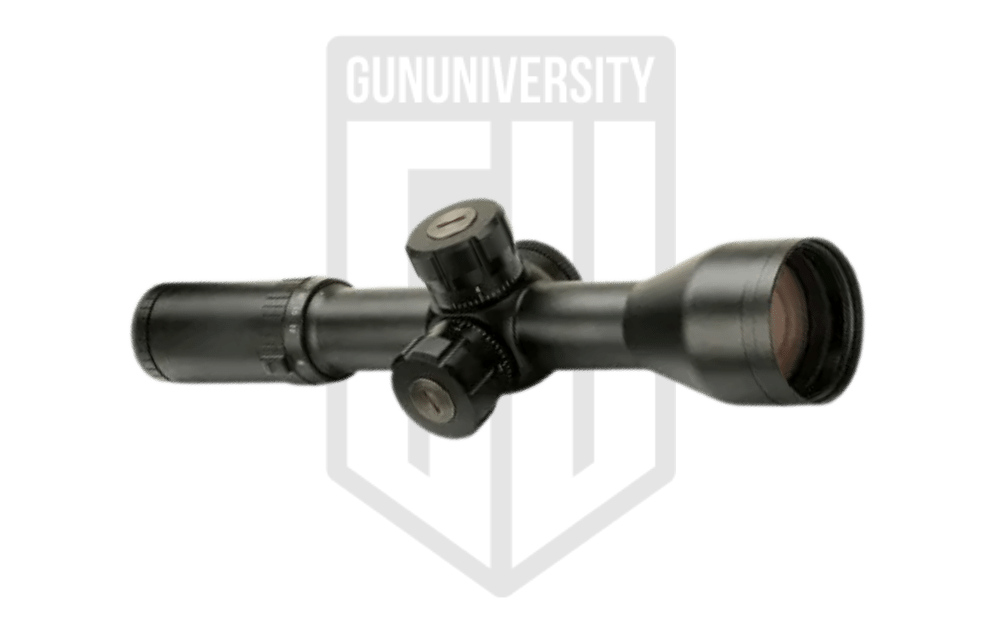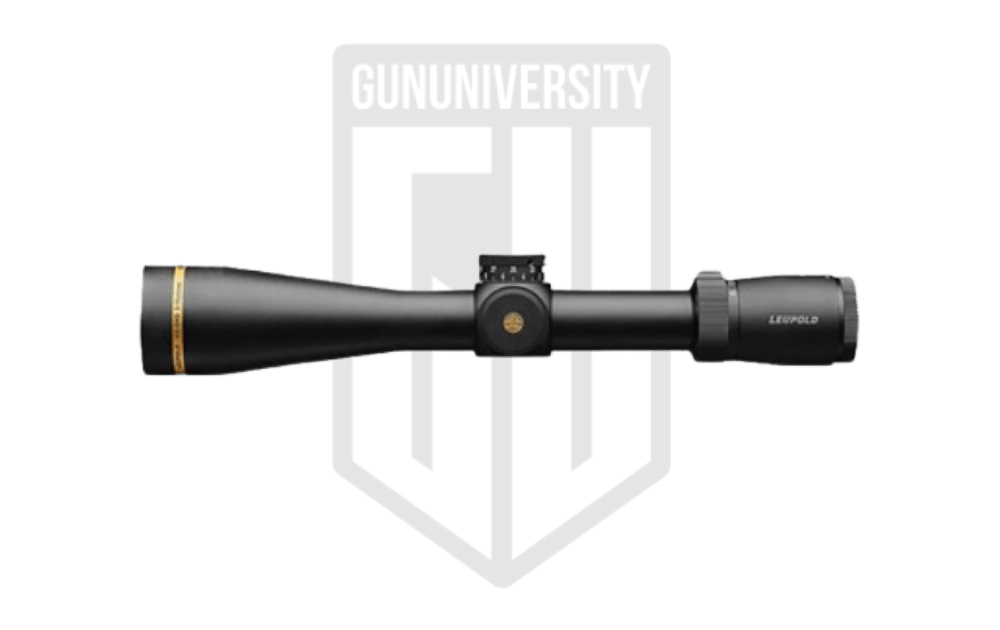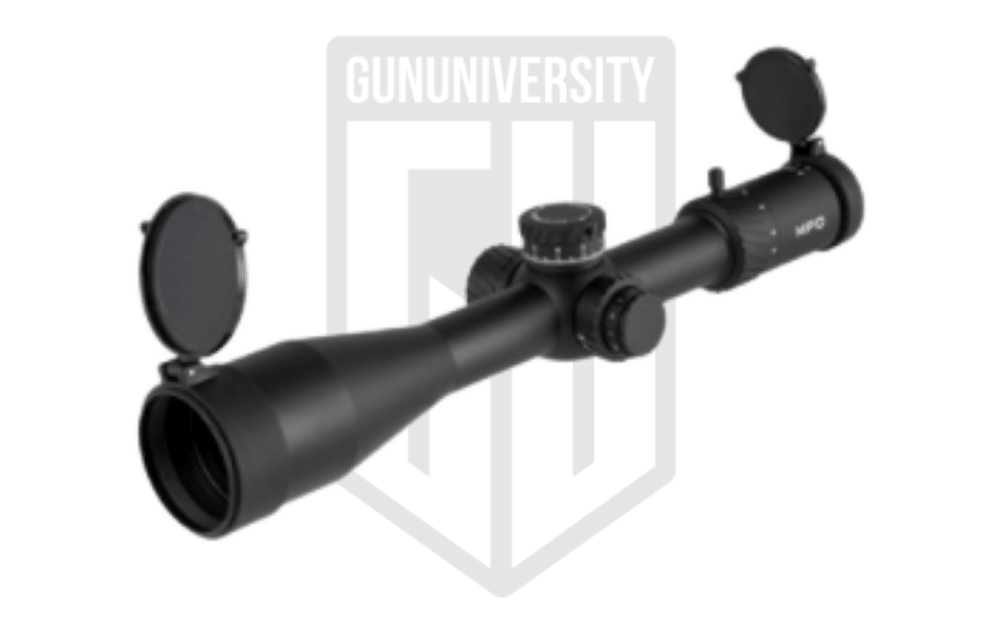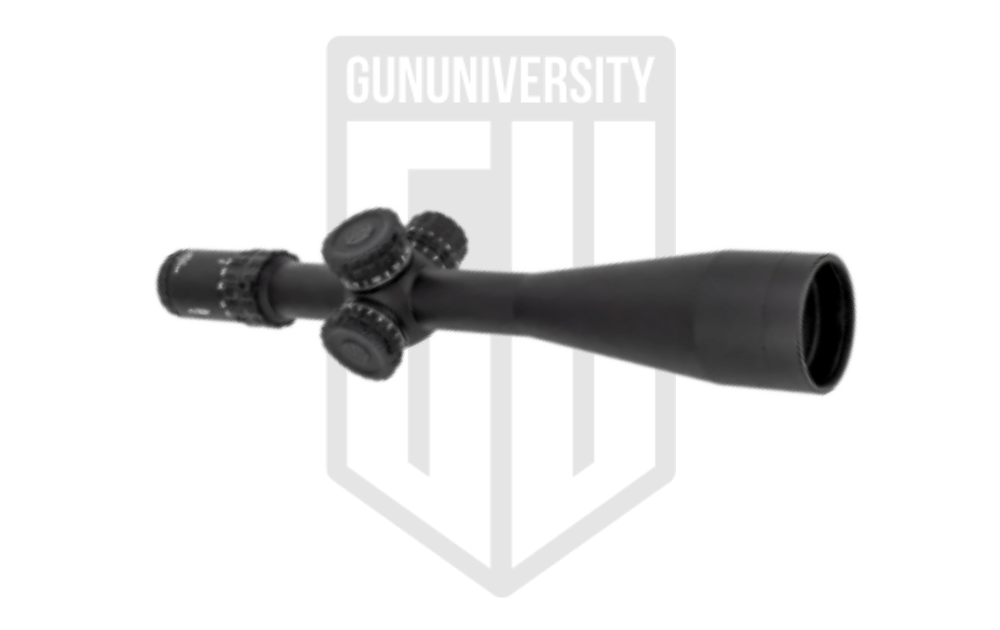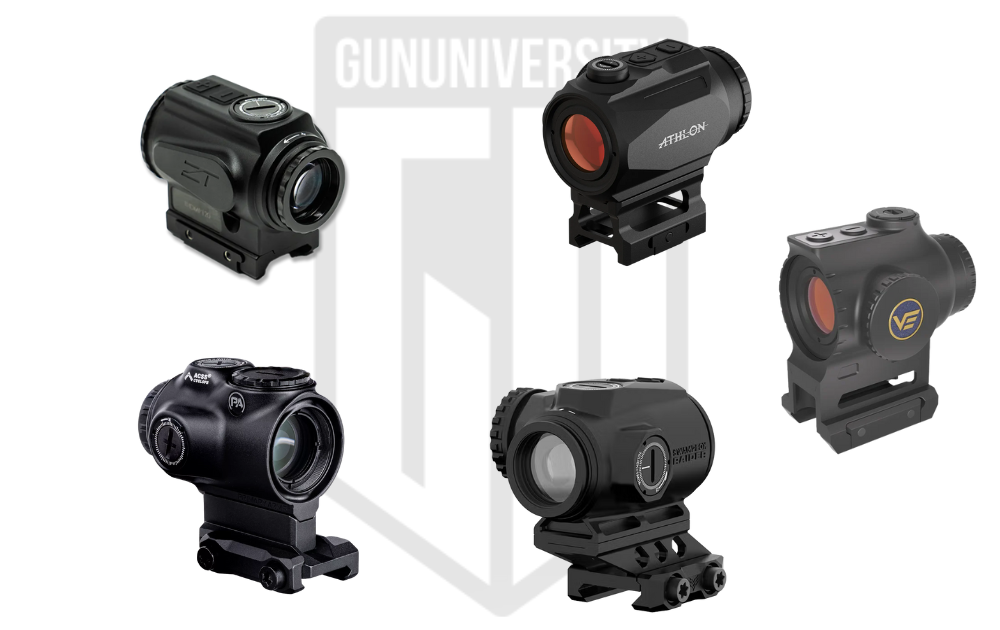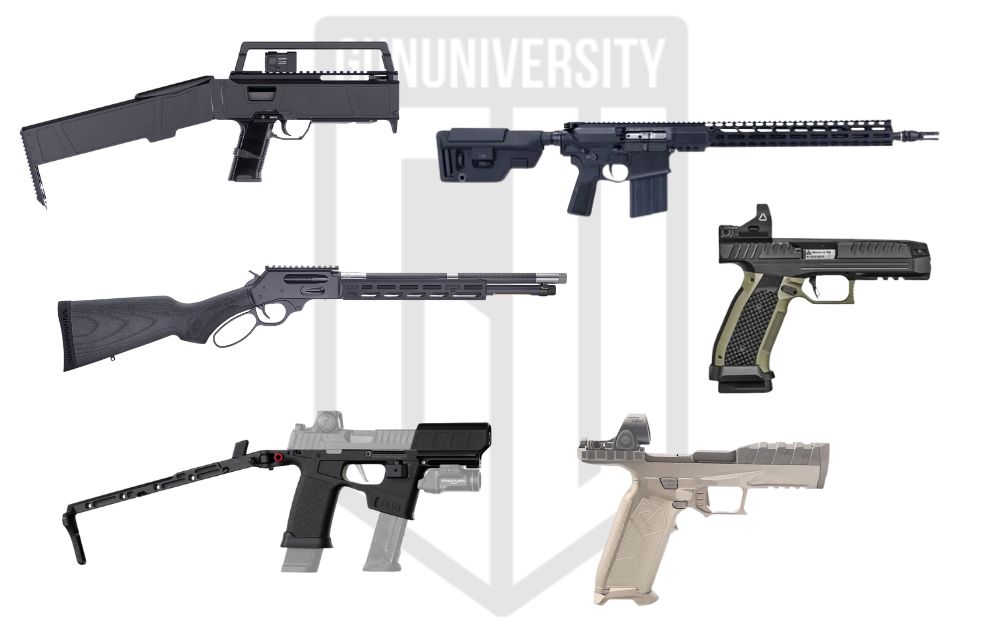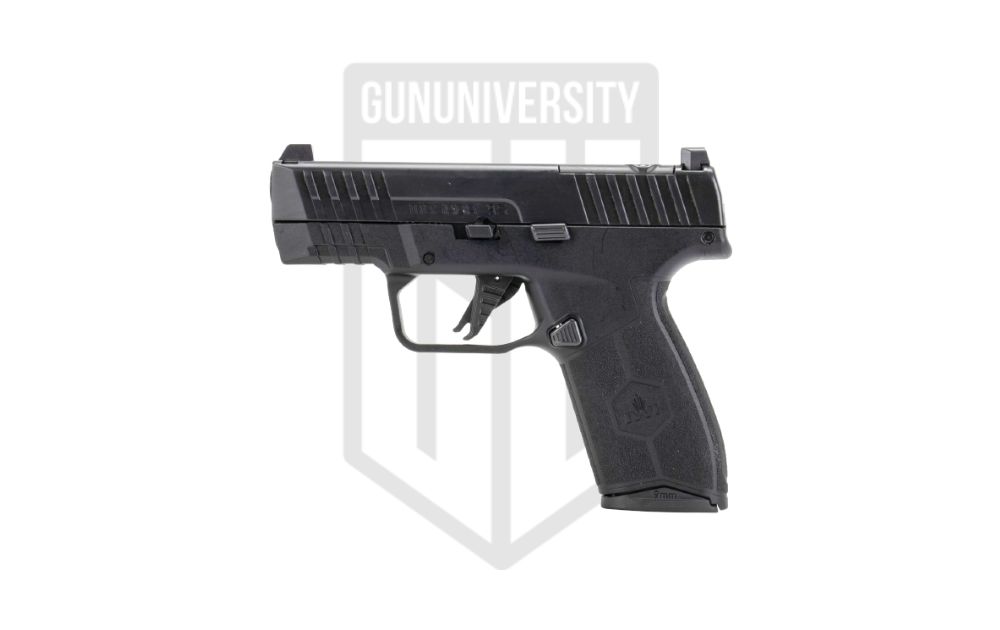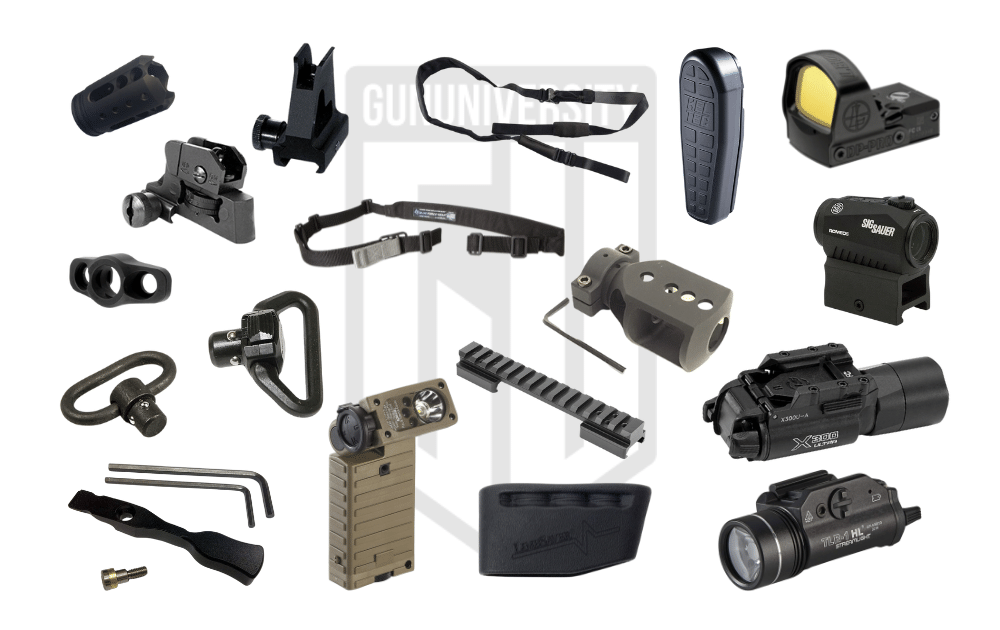6 Best Scopes for 6.5 Grendel (+ 2026 Buyers Guide)
There’s nothing I love more than going scope shopping after picking out a new rifle but nailing down exactly what the best choice is can be a long and difficult road.
If you’ve got yourself a 6.5 Grendel, then you’re in luck because I’ve done the leg work for you!
In this article, I’ll help you choose the best scope for 6.5 Grendel that fits your needs. Let’s dive in.
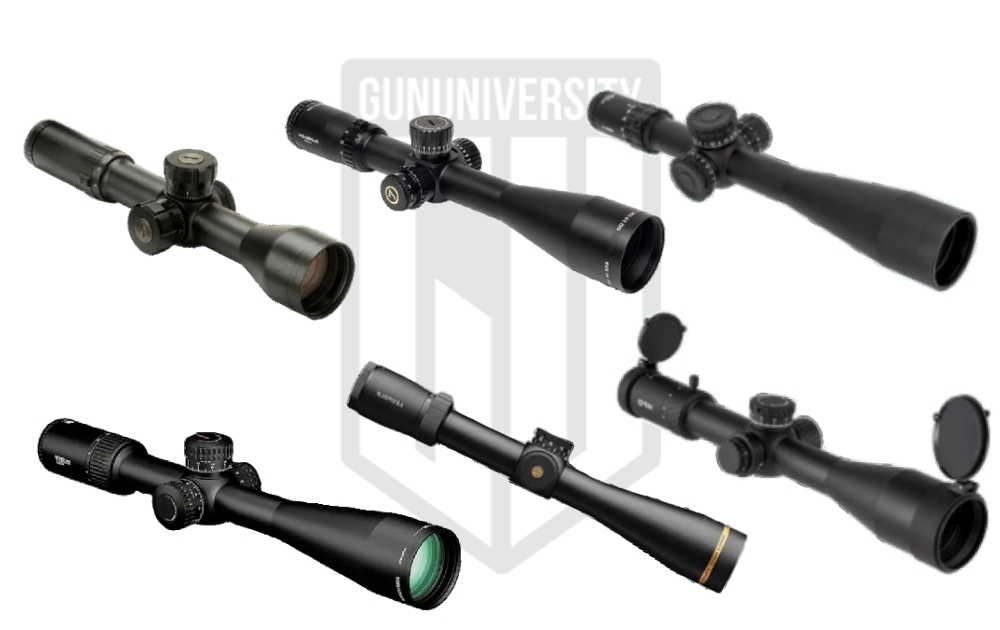
What is a 6.5 Grendel Scope?
A 6.5 Grendel scope is a specialized type of optic made specifically for the 6.5 Grendel rifle.
This rifle is prized for its remarkable long-range accuracy and minimal recoil. A dedicated scope like this is important for getting the most out of your 6.5 Grendel rifle, especially if you’re into long-range hunting or precision shooting.
How I Chose the Best Scope for 6.5 Grendel
As a lifelong shooter, I’ve had the chance to own and try out many 6.5 Grendel scopes, including some provided by manufacturers.
So when putting together this article, I went through the scopes that served me well and considered factors like reliability, glass, reticle, ergonomics, and value.
But I’m just one person, so I reached out to some of the top shooters in the industry to get their thoughts on the 6.5 Grendel scopes on my list. They also recommended a few of their favorites. So, I’ve put together a thorough list of what I believe are the best 6.5 Grendel scopes out there.
But remember, not all 6.5 Grendel scopes are created equal, and there’s no one-size-fits-all comparison standard. Scope preferences are highly personal, and what works for me might not work for you. That’s why I’ve tried to put together a broad selection that has something for everyone. Let’s get right into it.
Gun University’s Choices of the Best Scope for 6.5 Grendel
Best Scopes For 6.5 Grendel
EDITOR’S CHOICE Athlon Ares BTR Gen II 4.5-27×50 | 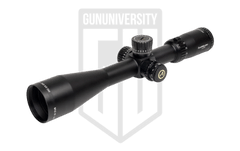 | Editor’s Choice
| Check Price |
BEST ENTRY LONG RANGE Vortex Viper PST II 5-25×50 | 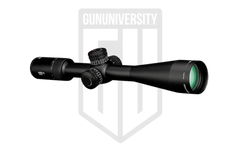 | Best Entry Long Range
| Check Price |
BEST NEW DESIGN Bushnell Elite Tactical DMR3 3.5-21×50 | 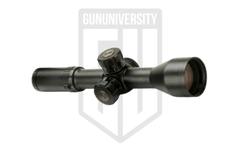 | Best New Design
| Check Price |
BEST AMERICAN MADE Leupold VX-5HD 3-15×44 | 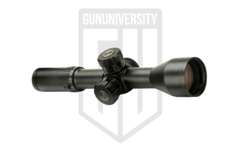 | Best American Made Hunting Scope
| Check Price |
BEST NEW BRAND Brownells MPO 5-25×56 | 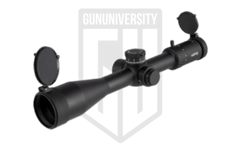 | Best New Brand
| Check Price |
BEST CHEVRON RETICLE Primary Arms GLx 6-24×50 | 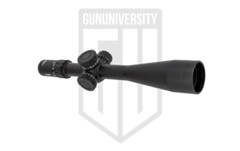 | Best Chevron Reticle
| Check Price |
Snapshot of the Best 6.5 Grendel Scopes
Here is our list of the best scopes for 6.5 Grendel:
- Vortex Viper PST II 5-25×50 – Best Entry Long Range
- Bushnell Elite Tactical DMR3 3.5-21×50 – Best New Design
- Leupold VX-5HD 3-15×44 – Best American Made Hunting Scope
- Brownells MPO 5-25×56 – Best New Brand
- Athlon Ares BTR Gen II 4.5-27×50 – Editor’s Choice
- Primary Arms GLx 6-24×50 – Best Chevron Reticle
Best 6.5 Grendel Scopes Review
Above we have outlined our top picks, and below we’ll be looking at the individual reviews, the pros and cons, and the price point of each scope.
1. Athlon Ares BTR Gen II 4.5-27×50
Athlon Ares BTR Gen II 4.5-27×50
Possibly the best sub-$1,000 scope on the market, Athlon Ares BTR II is a big stick that won’t break your bank.
- Reliability A-
- Glass A-
- Reticle B+
- Ergonomics A-
- Value A+
Our Grade
A-
Reader’s Grade
TBD
Based on 0 Reviews
Your Grade
Do You Own This Optics? Leave A Review
Success Your Grade Has Been
Added To Our Reader’s Score
We use email to verify the accuracy of our reviews. We promise to never spam you.
BTR II 4.5-27×50 Specs
- Magnification Range 4.5-27x
- Focal Plane FFP
- Weight 27 Oz
- Length 13.8in
- FoV @ 100y 22.7ft/3.8ft
- Illuminated Yes
- Total Elevation Adjustment 80 MOA
- Tube Size 30mm
- Zero Stop Yes
Athlon Ares BTR II 4.5-27×50 Review
The best way to compare the Athlon Ares BTR Gen II is to stack it up against the legendary Vortex Viper PST II. Granted, the Ares comes in a touch more expensive on average but for the extra money, you’re getting a solid upgrade in glass quality.
First focal plane, 27 oz, zero stop, and illuminated, the Ares and Viper PST II are on paper very similar — but when you get behind them on the range, you’ll instantly see the difference.
The Ares was a great scope but after the Gen II upgrades, it has entered into a new class of scope with glass that punches much higher than its price point.
Price is always the limiting factor for optics and by boosting the price a bit more, you can get a lot of extra quality and clarity with the Ares Gen II.
Athlon Ares BTR II Pros and Cons
- Awesome glass for the price
- Excellent beginner’s scope
- Not overly heavy
- Reticles are good, but limited
Ares BTR II 4.5-27×50 Deals
-
$869.99
-
$869.99
2. Vortex Viper PST II 5-25×50
Vortex Viper PST II 5-25×50
In the battle for getting what you pay for, the Viper PST II stands out as being one of the few that actually delivers more than what you’d expect from that price ticket.
- Reliability A+
- Glass B+
- Reticle A
- Ergonomics A-
- Value A+
Our Grade
A
Reader’s Grade
A
Based on 10 Reviews
Your Grade
Do You Own This Optics? Leave A Review
Success Your Grade Has Been
Added To Our Reader’s Score
We use email to verify the accuracy of our reviews. We promise to never spam you.
Viper PST II 5-25×50 Specs
- Magnification Range 5-25x
- Focal Plane FFP
- Weight 31.2 Oz
- Length 15.79in
- FoV @ 100y 24.1ft/4.8 ft
- Illuminated Yes
- Total Elevation Adjustment 70 MOA
- Tube Size 30mm
- Zero Stop Yes
Viper PST II 5-25×50 Review
Broadly considered the best long range scope for persons starting in the hobby, the Vortex Viper PST II is among a few Vortex scopes that strike a great balance between the features you need, glass quality, and price.
Typically coming in at under $700 the 5-25×50 gives you enough magnification that you can see as far as you need while also delivering awesome glass clarity and quality.
This scope has all the essentials: a first focal plane, a zero stop, excellent reticles, not too heavy, and it even has illumination. It’s got everything you need, without any unnecessary extras.
While it might not be the clearest, the lightest, or the cheapest, it is fantastic for someone starting in the long-range world.
You can read the full review of the Viper PST II 5-25×50 here.
PST II 5-25×50 Pros and Cons
- Low cost, high-value
- Perfect for the starting shooter
- Reselling retains nearly 100% of the purchase cost
- Glass is limited by the price tag
Vortex Viper PST II 5-25×50 Deals
-
$1,099.99
-
$1,099.00
-
$999.99
3. Bushnell Elite Tactical 3.5-21x
Bushnell Elite Tactical 3.5-21x
Brand new from Bushnell, this is some of the most bleeding edge of design and development on the market.
- Reliability A
- Glass B+
- Reticle A
- Ergonomics A-
- Value A
Our Grade
A-
Reader’s Grade
TBD
Based on 0 Reviews
Your Grade
Do You Own This Optics? Leave A Review
Success Your Grade Has Been
Added To Our Reader’s Score
We use email to verify the accuracy of our reviews. We promise to never spam you.
Bushnell Elite Tactical Specs
- Magnification Range 3.5-21x
- Focal Plane FFP
- Weight 35.5 Oz
- Length 13.2in
- FoV @ 100y 25.5ft/5.1ft
- Illuminated No
- Total Elevation Adjustment 110 MOA
- Tube Size 34mm
- Zero Stop Yes
Bushnell Elite Tactical DMR3 Review
Most people, myself included until a couple of years ago, think of Bushnell as a Walmart gun counter deer blast scope company. Good enough for your kid’s first deer gun, but that’s about it.
In truth, Bushnell makes some outstanding scopes and doesn’t get the credit that they deserve.
The Elite Tactical line from Bushnell is their flagship line of scopes and has been recently redesigned to be even better than they were before.
The DMR3 has some outstanding glass, an ultra-durable design, a 34mm main tube, a zero stop, and a whole lot more going for it.
Bushnell Elite Tactical Pros and Cons
- Cutting edge
- Awesome feature set
- G4P reticle
- Only 1 reticle choice
- Hard to find one to look at before buying
Elite Tactical DMR3 3.5-21×50 Deals
-
$900.00
4. Leupold VX-5HD 3-15×44
Leupold VX-5HD 3-15×44
With nearly every scope manufacturer making their scopes outside of the USA, Leupold stands almost alone with being all-American.
- Reliability A-
- Glass A
- Reticle B+
- Ergonomics A+
- Value B+
Our Grade
A-
Reader’s Grade
TBD
Based on 0 Reviews
Your Grade
Do You Own This Optics? Leave A Review
Success Your Grade Has Been
Added To Our Reader’s Score
We use email to verify the accuracy of our reviews. We promise to never spam you.
VX-5HD 3-15×44 Specs
- Magnification Range 3-15x
- Focal Plane SFP
- Weight 22 Oz
- Length 13.6in
- FoV @ 100y 38.3ft/7/7ft
- Illuminated Yes
- Total Elevation Adjustment 75 MOA
- Tube Size 30mm
- Zero Stop Yes
Leupold VX-5HD 3-15×44 Review
Except for the glass, everything in the Leupold VX-5HD is made in the USA. The glass is sourced from Japan however, if you want good glass, there’s no choice but to go outside of the country.
The result is a lightweight, amazing optical quality, solid hunting scope that you can be proud to use in any environment.
Leupold offers a wide range of reticles, but will upcharge you for anything over the standard duplex. This is annoying but not the end of the world depending on what reticle style you’re looking for.
Supporting US workers requires spending more, that is just the nature of our world. If you want the best deal or the most value for your dollar, Leupold can’t deliver that.
But a top-quality American scope that will last you a generation — Leupold has you covered.
Leupold VX-5HD 3-15×44 Pros and Cons
- American made
- Lightweight
- Wide FoV
- Leupold upcharges for reticles
Leupold VX-5HD 3-15×44 Deals
-
$1,099.99
-
$1,299.99
-
$1,299.99
5. Brownells MPO 5-25×56
Brownells MPO 5-25×56
A real sleeper of a scope, Brownells MPO is one of the most underrated and best deals you can find.
- Reliability A
- Glass A-
- Reticle A
- Ergonomics A
- Value A
Our Grade
A
Reader’s Grade
TBD
Based on 0 Reviews
Your Grade
Do You Own This Optics? Leave A Review
Success Your Grade Has Been
Added To Our Reader’s Score
We use email to verify the accuracy of our reviews. We promise to never spam you.
Brownells MPO 5-25×56 Specs
- Magnification Range 5-25x
- Focal Plane FFP
- Weight 37 Oz
- Length 15.4in
- FoV @ 100y 21ft/4.35ft
- Illuminated Yes
- Total Elevation Adjustment 68 MOA
- Tube Size 34mm
- Zero Stop Yes
Brownells MPO 5-25×56 Review
Brownell’s is normally the place you think of to buy just about anything firearm-related and has been for years my first stop when shopping. But once in a while they also design and produce their own product, the MPO was their first attempt at a long range precision scope and they’ve knocked it out of the park.
The Match Precision Optic is massively underrated because it doesn’t have a well-known name behind it, but it’s honestly one of the best $1k scopes I’ve ever owned.
The glass is awesome, the FOV is good, 34mm tube, zero stop, and illuminated. Plus, the special Non-Obscuring Reticle.
A new take on how to make a reticle, the MPO takes a moment to get used to but once you do you can quickly appreciate being able to see your target at all times.
Downsides? It’s a touch heavy but it takes the best new brand scope on my list.
Brownells MPO 5-25×56 Pros and Cons
- Non-Obscuring Reticle
- Backed by Brownell’s forever warranty
- Japanese LOW glass
- 37 oz is a bit heavy
- Only 1 reticle option leaves little agency
Brownells MPO 5-25×56 Deals
-
$999.99
6. Primary Arms GLx 6-24×50
Primary Arms GLx 6-24×50
Designed entirely in-house, Primary Arms reticles are true works of art once you get to know them.
- Reliability B+
- Glass A
- Reticle B
- Ergonomics A
- Value A
Our Grade
A-
Reader’s Grade
TBD
Based on 0 Reviews
Your Grade
Do You Own This Optics? Leave A Review
Success Your Grade Has Been
Added To Our Reader’s Score
We use email to verify the accuracy of our reviews. We promise to never spam you.
Primary Arms GLx 6-24×50 Specs
- Magnification Range 6-24×50
- Focal Plane FFP
- Weight 24.5 Oz
- Length 15.3in
- FoV @ 100y 15.2ft/4.2ft
- Illuminated Yes
- Total Elevation Adjustment 60 MOA
- Tube Size 30mm
- Zero Stop Yes
Primary Arms GLx 6-24×50 Review
If you don’t like a busy reticle, chances are you won’t like the ACSS Athena. But if you can handle all of the markings and learn to use them to your advantage, you have a major tool with the best chevron reticle at your disposal that can help in some big ways.
From a range estimator in the reticle to the dozens of aiming points that won’t obscure your target, the ACSS Athena can feel overwhelming at first but is very handy.
If you’ve seen or used Horus reticles, the ACSS Athena will feel familiar but without the extra price tag tacked on to anything Horus.
Everything else about the scope is very much built to be a mid-tier scope and it feels like it. Glass quality is middle of the road, turrets feel about average, and even the finish feels exactly like what you would expect for a Goldilocks price piece of equipment.
None of that is a bad thing, but you’re getting exactly what you pay for.
GLx 6-24×50 Pros and Cons
- ACSS Athena reticle is awesome
- Primary Arms customer service is outstanding
- Chevrons are cool
- This is a mid-tier scope and it feels like it
- Chevrons aren’t for everyone
Primary Arms GLx 6-24×50 Deals
-
$799.99
-
$849.99
Having covered the best Grendel scopes, let’s now look at what to consider when choosing a 6.5 Grendel scope. But first, if you need help finding the right scope rings and base for your rifle and scope combo, click here.
The Best 6.5 Grendel Scopes – Buyers Guide
There is a lot to think about when shopping for a new scope for your 6.5 Grendel rifle and even for an experienced shooter it can be hard to make a final decision. Besides, you don’t want to spend hundreds of extra dollars on something that won’t give you the best use of your rifle.
So, in this guide, I will help you to better understand the the factors that you need to consider when buying a scope for your 6.5 Grendel rifle.
Having covered the best Grendel scopes, let’s now look at what to consider when choosing a 6.5 Grendel scope. But first, if you need help finding the right scope rings and base for your rifle and scope combo, click here.
The Best 6.5 Grendel Scopes – Buyers Guide
There is a lot to think about when shopping for a new scope for your 6.5 Grendel rifle and even for an experienced shooter it can be hard to make a final decision. Besides, you don’t want to spend hundreds of extra dollars on something that won’t give you the best use of your rifle.
So, in this guide, I will help you to better understand the the factors that you need to consider when buying a scope for your 6.5 Grendel rifle.
Factors To Consider When Choosing the Best Scope for 6.5 Grendel
After you have a clear vision of what you want to do with your 6.5 Grendel rifle, picking the scope is a matter of weighing the specs that matter most to you. We’ll break down the biggest specs to keep in mind and inform you as to why you should care about each.
Purpose: While 6.5 Grendel can do a lot, it helps if you narrow down your goals a bit. Is this a hunting rifle? A PRS starter? Maybe you just want to take a chance at the long range bay and see what you can do with your AR-15.
No matter what your goals are, clearly defining them will lead you to choose the features that you actually need and should save you some money in the process.
For example, going hunting with a 40 oz scope kind of sucks, also shooting multiple steel targets at unknown ranges with an SFP scope is pretty unfun.
Know what you want to do and keep that in mind while looking over the features and specs of each scope.
Magnification Range: Every scope is going to be written as being [Name] followed by something like “4-25×50” or “3-18×44”. Those first two numbers are the magnification range, so 4-25 and 3-18 in the above examples.
This is simply how close the target will appear to you when looking through the scope, anything between 4 and 25 times as close or 3 to 18 times as close.
Broadly speaking, a scope can’t have a “too low” minimum magnification. While lower magnifications might not be used very often, it can be very useful when you need to see as much as possible when looking for a target.
There is such a thing as having too much magnification. Most hunting is done at 12x or less and most PRS shooting is done at 18x or less.
Anything more and finding and tracking a target gets much harder. While you can use more, you generally don’t need it.
That said, I normally like to have some wiggle room and look for scopes of about 18-20x as the max for hunting and 25-30x for PRS/long range shooting.
Rarely you’ll see scopes with 40 or even 60x as their max, and if you do, ignore those for the most part. Those are built for niche shooting like F-Class and put you at a major disadvantage in almost every other kind of shooting.
Lower top-end magnification will result in a lighter scope and more light transmission, this is critical for hunting in lower light and should be something to keep in mind.
On the other hand, if your goal is to shoot the smallest group possible — higher magnification can help keep you ultra-precise.
FFP or SFP: Number one on my list of specs to check is always FFP or SFP.
The “focal plane” is basically where the scope of the reticle is placed.
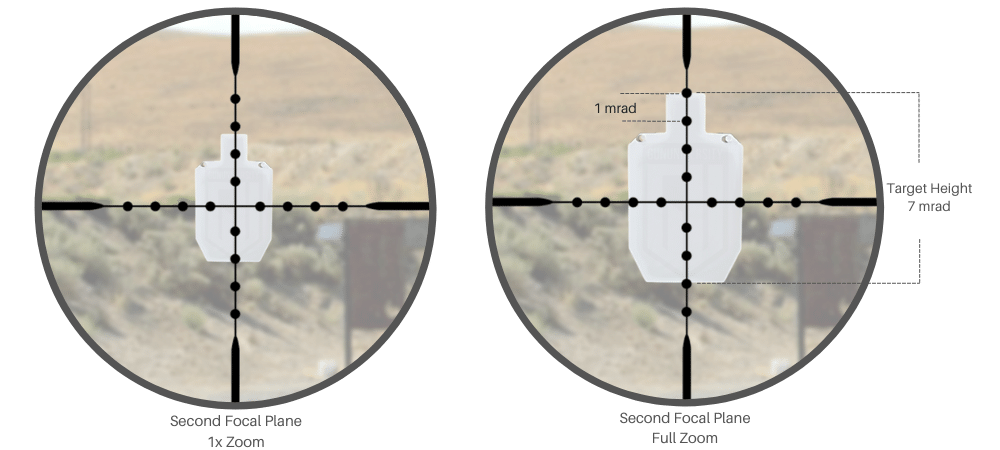
The second focal plane means your reticle will not change size as you adjust magnification. It will always be the same size, no matter what. This is great for having a nice large reticle you can see at lower magnification, but it can mean that you don’t have as fine of crosshairs as you might want.
It also means that any MRAD or MOA or bullet drop marks won’t be accurate except at the magnification they are calibrated for — normally the max magnification.
2 MOA at max magnification might mean 2 MOA, but the 2 MOA mark in your reticle at half the magnification won’t be 2 MOA anymore.
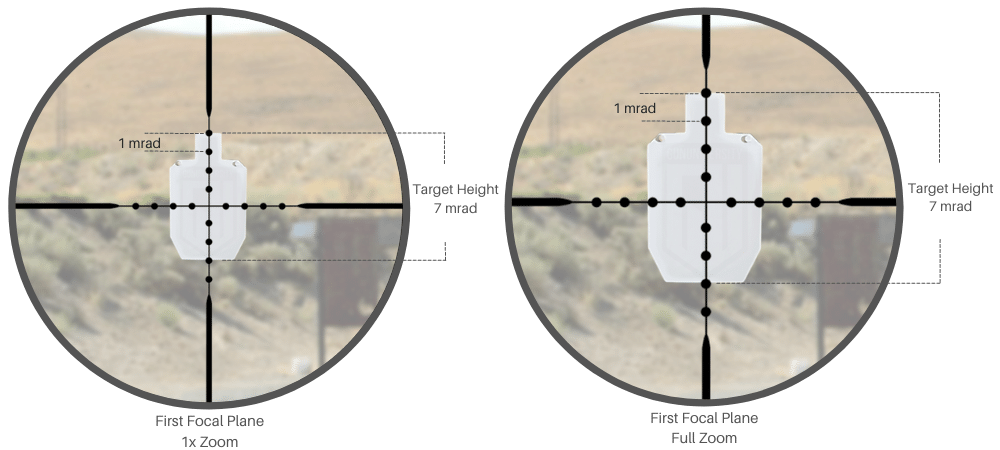
The first focal plane is basically the opposite, the reticle changes size as you move through magnification but the marks in the reticle will always be accurate. 2 MOA is always 2 MOA.
This is very much preferred for long range target shooting since having accurate markings is important. It also provides a finer crosshair at high magnification.
The downside is that at low magnification you might not be able to see all of the information in the reticle since it gets much smaller.
Personally, I’m all in on FFP. I’ve used it long enough that I hate going back to SFP. I’m also a big believer in holding over for longer shots and FFP is built for that.
To learn more about FFP vs SFP, click here.
Weight: Pretty straightforward, lighter scopes are nice for packing them long distances but heavy scopes often offer more features, lower prices, or just more durability.
Anything under 20 oz is normally considered to be “lightweight”. Anything over about 33-35 oz is seen as being on the thick side.
Ultra Lightweight scopes can be found as low as 9 oz, but you sacrifice a lot of features and durability doing that.
Field of View: Field of view is simply the distance across that you can see at a set magnification. Normally when looking at specs they’ll tell you the FoV for 100 yards or meters and give both the minimum magnification and the maximum.
For example, “27ft/5ft” would be 27 feet at the lowest magnification and 5 feet at the max.
Broadly speaking, I don’t put a ton of weight into FoV. More FoV is always nice, but generally, the FoV between two scopes of the same magnification/tube size/objective lens will be basically the same.
Illumination: Hunters and target shooters use illumination for essentially the same thing — contrast.
In low light, trying to shoot that dark furry animal who is standing against that dark gray rock or bushes with your black reticle can be an impossible challenge to cleanly place your reticle on their vitals.
Similarly, shooting a dark gray piece of steel that has been shot all day and is coated in people’s lead splash when it is sitting against a dark hillside can be equally frustrating with your black reticle.
Illumination turns part or all of your reticle red (or sometimes green) and gives you something you can actually see.
Most good scopes come with illumination, but some might leave it out to save weight or money.
Total Elevation Adjustment: Just as it sounds, this is the amount you can adjust your reticle from top to bottom. This can either be critical to you or totally meaningless, just depending on the cartridge and how far you want to shoot.
First, you need to know that while the “total elevation adjustment” might be something like 100 MOA — you really only have access to about half of that.
Because your reticle is going to be roughly in the middle of the adjustment when zeroed, you really only have about 50 MOA of elevation adjustment to work with if the total is 100 MOA.
But will it matter?
For 6.5 Grendel your ethical/effective hunting range is likely sub-400 yards, for target shooting you can reach out to 1,200 yards with some skill but more generally around 1,000 yards.
Generally speaking, 6.5 Grendel only needs about 9 MOA for 400-yard shots.
1,000 yards needs 42ish MOA.
Even for 1,200 yards it only needs around 60 MOA of adjustment.
For a hunting scope, the total elevation adjustment won’t really matter since you need so little.
But if you’re looking to really, really reach out with your Grendel — make sure you get something with at least 100 MOA of total adjustment.
If you need a little boost, using 20 MOA scope rings or mounts can give you the little extra you need.
Many scopes will list their total elevation values in MRAD instead of MOA or will sometimes list both. If you’re not hip to the difference, take a look at our articles on MOA and MRAD!
Zero Stops: Zero stops are always handy and I love them. A zero stop is just a mechanical way of getting your scope back to zero after you dial up for a longer shot. Having a firm point to start off with is always really nice and makes switching targets or ranges easier.
You Bought A Scope, Now What?
Getting a new scope is awesome, but it won’t do much good if it isn’t on the rifle!
While you can get your scope mounted and zeroed by a gunsmith, both are critical skills that you the gun owner really should know. Both are pretty easy so don’t worry! To make mounting the scope super simple, take a look at our How To Mount A Scope: 7 Steps To Installing A Riflescope The Right Way!
After it’s mounted you need to zero it. Zeroing is the process of getting your point of aim (POA) to match your bullet’s point of impact (POI) at a set distance — normally 100 yards.
This is another fairly easy but critical process that you simply need to know. I recommend starting at fairly close ranges and working backward from there. I normally get on paper at 50 yards and then do a final zero at 100.
For a ton more info, take it from the expert on How To Adjust A Rifle Scope and How To Sight In A Rifle Scope: Zeroing Made Easy!
Don’t Forget, You Get What You Pay For
6.5 Grendel is an awesome cartridge and honestly one of my favorites. It can be a do-all tool that gets just about everything done well while staying in a small package.
But like anything else, scopes strongly follow the rule of getting what you pay for. Any boost in budget on your optic will pay off down the road for both hunting and long range shooting.
While there are a few exceptions that stand out because they deliver more than what you should expect based on their price, these are few and far between.
Glass quality matters more than anything and glass isn’t cheap. While you might not see a difference at the counter of Bass Pro, you will see a difference when you’re looking at a target 700 yards away when it’s overcast and you’re tired from a day of being on the range or hiking through the landscape.
As always, if you have questions feel free to hit us up in the comments! I love to read and answer them to offer a last bit of advice when I can.
Best Scope for 6.5 Grendel – FAQs
What scopes are best suited for shorter barrel lengths on 6.5 Grendel rifles?
When it comes to 6.5 Grendel rifles with a shorter barrel length, scopes that have a wider field of view (FOV) and lower magnification ranges, like 1-6x or 2-10x, are typically the best fit. They give you flexibility for shooting at closer to mid-range distances without losing performance. But what’s best can also depend on things like what you plan to use it for, what you like, and how much you want to spend.
Do I need illumination in my scope for 6.5 Grendel?
Illumination can be beneficial, especially in low-light conditions for hunting or target shooting. It improves the contrast and visibility of the reticle against dark backgrounds. But if you’re mostly shooting in bright places, you might not really need it.
What factors should I consider when choosing between FFP and SFP scopes for my 6.5 Grendel rifle?
Choose FFP if you prioritize consistent reticle subtensions across all magnification levels, ideal for long-range precision shooting. Opt for SFP if you prefer a constant reticle size for easier visibility at low magnifications, suitable for hunting and close-range shooting.
Are there specific reticle types recommended for 6.5 Grendel scopes?
Reticle preferences vary, but popular choices for 6.5 Grendel scopes include mil-dot, BDC (Bullet Drop Compensating), or Christmas tree-style reticles, which aid in holdover and windage adjustments for precise long-range shooting.
Recent Posts
January 19, 2026
January 12, 2026
January 10, 2026
January 10, 2026

